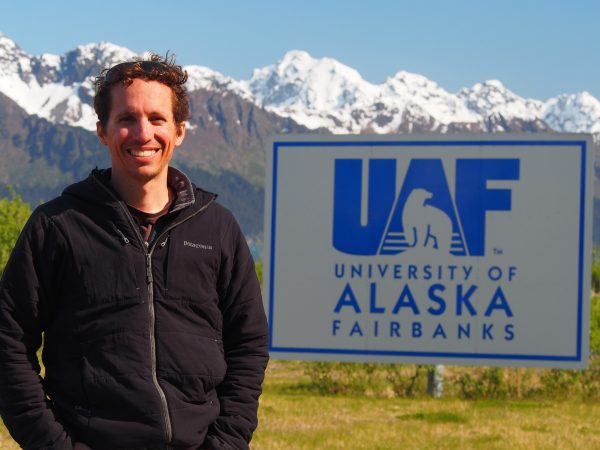Professor receives award to study global oceans
February 23, 2017
Lauren Frisch
907-474-5350

A University of Alaska Fairbanks assistant professor will study tiny animals and particles across the world's oceans after receiving an award from the National Science Foundation.
Andrew McDonnell, with the UAF College of Fisheries and Ocean Sciences, received a five-year, $750,000 Faculty Early Career Development Award. The NSF program is designed to support teacher-scholars who effectively integrate research and education. McDonnell's project will also aim to educate Alaskans about ocean sciences and what it means to be an oceanographer.
McDonnell will use underwater cameras to measure the sizes, concentrations and types of particles and zooplankton in ocean water. This research has implications for how carbon is transported to and stored in different parts of the ocean.
McDonnell has used underwater cameras since graduate school but has focused on particular regions. This project will allow him to apply what he has learned to oceans around the world and compare different regions.
“Looking at what is happening from a global perspective will help us better investigate the role of these particles and plankton in the global carbon cycle,” McDonnell said.
McDonnell will create a museum exhibit for the Alaska Sea Life Center focused on the important microscopic world of particles and plankton that are not always seen by aquaria curators and visitors alike. The exhibit will also include information about what ocean scientists do and how they collect samples and data at sea. It will display different sampling technology, as well as videos and photos that illustrate how oceanographers work, especially in the oceans around Alaska.
“The exhibit will be a great opportunity to showcase the research project, but also teach Alaskans what it means to be an oceanographer. We are hoping to inspire those who otherwise may not have access to this sort of information," he said.
McDonnell’s project also seeks to bring the knowledge displayed in this exhibit to Alaska Native communities with the hope that he can inspire children growing up on Alaska’s coastline to consider oceanography as a career choice.
“A lot of communities around the state are highly dependent on our oceans, but not many oceanographers come from those communities," he said. "We are going to work towards building up a workforce of Alaska Native scientists capable of studying parts of the natural marine environment that really matter to their communities, economies and cultures.”
The NSF CAREER award honors junior faculty members who have excelled in both research and education in their fields. McDonnell's project is scheduled to start in July, 2017.


